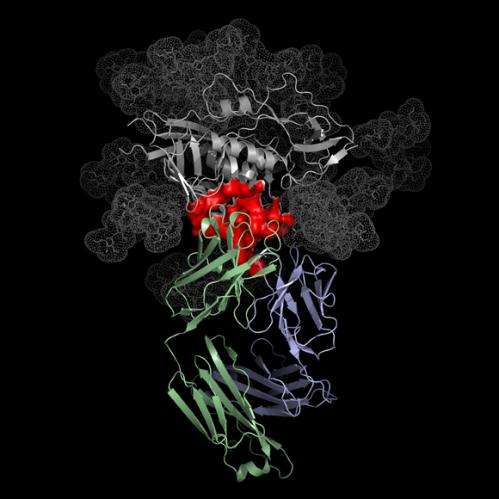Scientists boost potential of passive immunization against HIV

Scientists are pursuing injections or intravenous infusions of broadly neutralizing HIV antibodies (bNAbs) as a strategy for preventing HIV infection. This technique, called passive immunization, has been shown to protect monkeys from a monkey form of HIV called simian human immunodeficiency virus, or SHIV. To make passive immunization a widely feasible HIV prevention option for people, scientists want to modify bNAbs such that a modest amount of them is needed only once every few months.
To that end, an NIH-led team of scientists has mutated the powerful anti-HIV bNAb called VRC01 so that, once infused into monkeys, it lasts three times longer in blood than unmutated VRC01, collects in rectal mucosal tissue, and persists there more than twice as long as unmutated VRC01. Concentrating anti-HIV bNAbs at mucosal surfaces of the rectum and vagina, the subject of additional study, is critical for blocking sexual transmission of HIV.
In addition, the scientists found, a low-dose infusion of mutated VRC01 protected monkeys against SHIV infection more effectively than a low-dose infusion of unmutated VRC01.
The mutation works by enhancing VRC01's ability to bind to a cellular protein that prevents the antibody from degrading inside cells and influences how frequently the antibody reaches mucosal surfaces and stays there, the researchers report. This finding may inform antibody-based prevention strategies against not only HIV but also other viruses that invade the body at mucosal surfaces, including rotavirus, poliovirus, norovirus and influenza virus.
Next, the researchers will test infusions of mutated VRC01 in people to learn if it concentrates in mucosal tissues and persists there and in blood for an extended period.
More information: S-Y Ko, et al. Enhanced neonatal Fc receptor function improves protection against primate SHIV infection. Nature, DOI: 10.1038/nature13612 (2014).
















